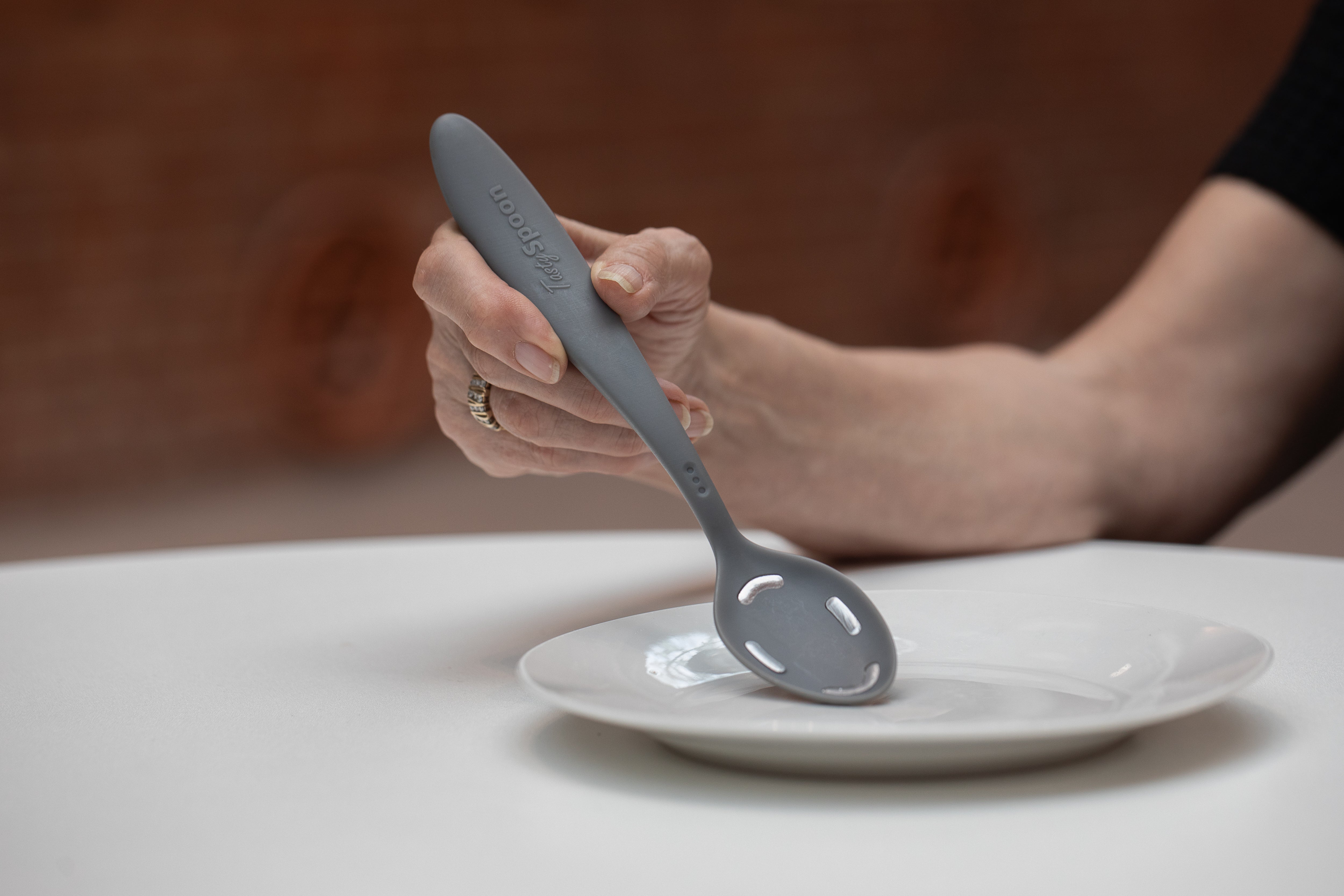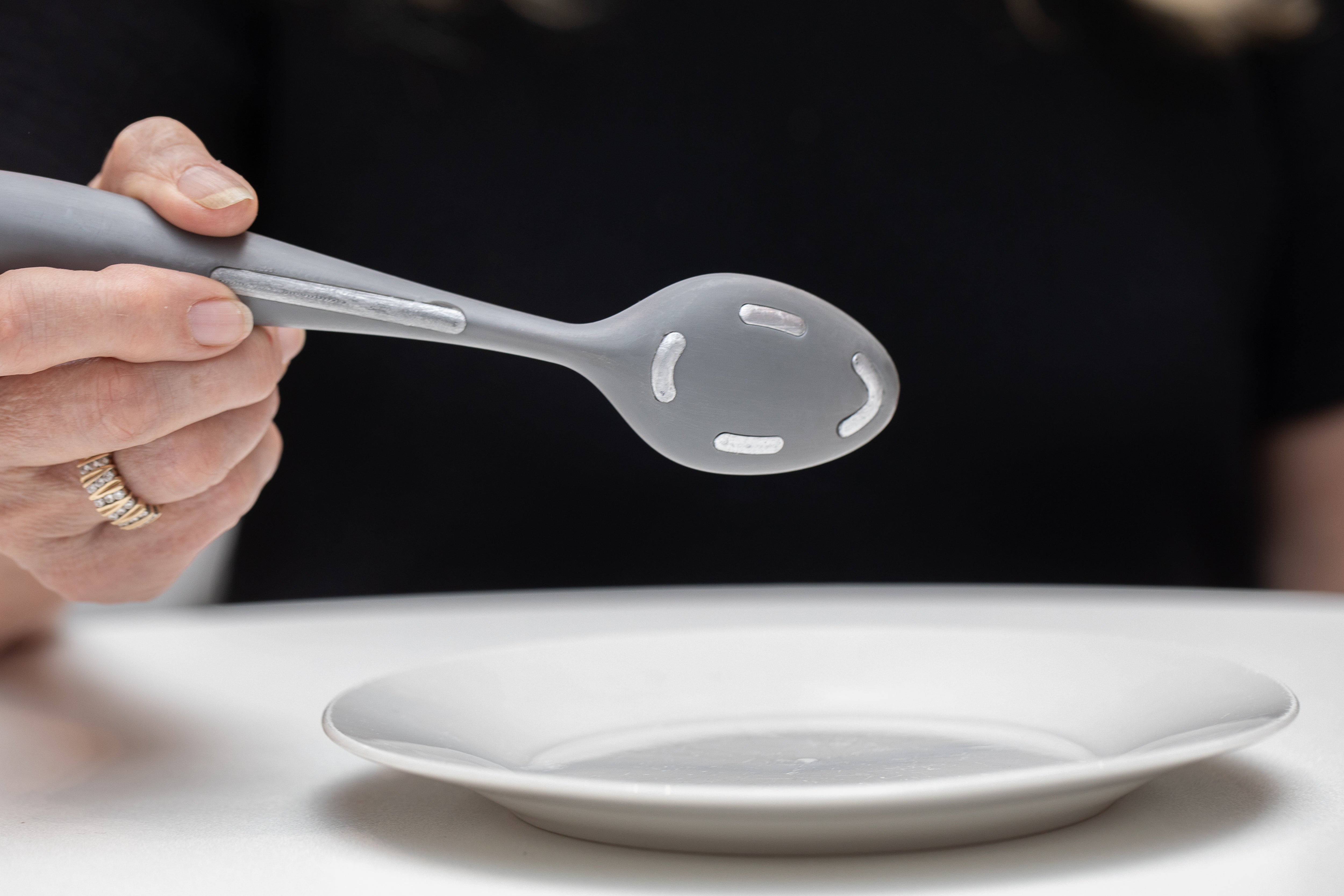Spoon designed to enrich lives of dementia patients
The Tasty Spoon uses electrostimulation to enhance the flavour of foods for patients experiencing a loss of taste

Your support helps us to tell the story
From reproductive rights to climate change to Big Tech, The Independent is on the ground when the story is developing. Whether it's investigating the financials of Elon Musk's pro-Trump PAC or producing our latest documentary, 'The A Word', which shines a light on the American women fighting for reproductive rights, we know how important it is to parse out the facts from the messaging.
At such a critical moment in US history, we need reporters on the ground. Your donation allows us to keep sending journalists to speak to both sides of the story.
The Independent is trusted by Americans across the entire political spectrum. And unlike many other quality news outlets, we choose not to lock Americans out of our reporting and analysis with paywalls. We believe quality journalism should be available to everyone, paid for by those who can afford it.
Your support makes all the difference.A high-tech device that looks like a normal spoon is being developed by researchers to help combat eating and drinking difficulties in people with dementia.
Known as Tasty Spoon, the device uses electrostimulation to enhance the flavour of foods for patients experiencing a loss of taste.
People with dementia often have issues with eating and drinking due to symptoms like memory loss, not being able to recognise food, and a decreased sense of smell and taste.
This can lead to patient’s losing weight and muscle strength.
The rechargeable Tasty Spoon looks like a traditional spoon but can help users differentiate between types of food, according to researchers.
Its development is being led by Dr Christian Morgner, of the University of Sheffield’s management school and Healthy Lifespan Institute.
He said: “A loss of taste can remove the enjoyment of food which impacts patient wellbeing as food plays such a significant role in our lives. This is especially prevalent in patients who live alone or in public care homes with more generalised nutrition.
“In a heartfelt disclosure, an individual shared that he only ate toast for the past five years, as to him there’s no difference between toast and a regular Sunday roast.”
Dr Morgner said the Tasty Spoon could also save the NHS money.

He added: “The development of a technological aid like the Tasty Spoon has the potential to rekindle the pleasure of eating for those facing taste-related challenges and therefore contribute to better health as well as mitigating the expense of treating the side effects of poor nutrition for the NHS.”
There are about 944,000 people in the UK with dementia, with one in 11 over the age of 65 suffering from the disease.
According to the NHS, the total could top one million people by 2030.
The Tasty Spoon project has partnered with Alzheimer’s Society’s Accelerator Programme, which is supporting bringing new products to market that help people living with dementia.
Simon Lord, head of innovation at Alzheimer’s Society, said: “A healthy, balanced diet can help improve a person’s quality of life.
“However, common symptoms of dementia, such as memory loss and difficulties with thinking and problem-solving, can make it more difficult to eat and drink well.
“That’s why we’re excited about the possibility Tasty Spoon presents in improving the taste and enjoyment of food and subsequently improving the health and nutrition of people living with dementia.
“Innovations like this are vital as they focus on enriching daily experiences and improving health and well-being.
“Tasty Spoon is a unique product, and we cannot wait to help get it into the hands of people living with dementia.”
Join our commenting forum
Join thought-provoking conversations, follow other Independent readers and see their replies
Comments